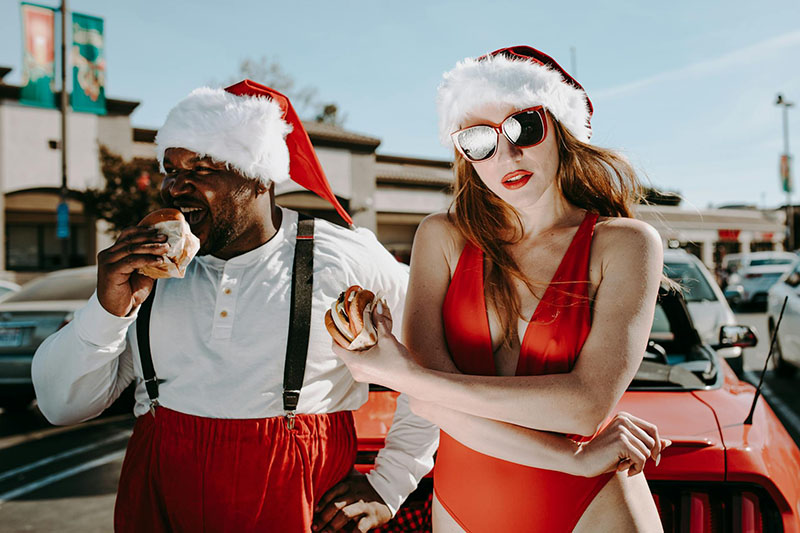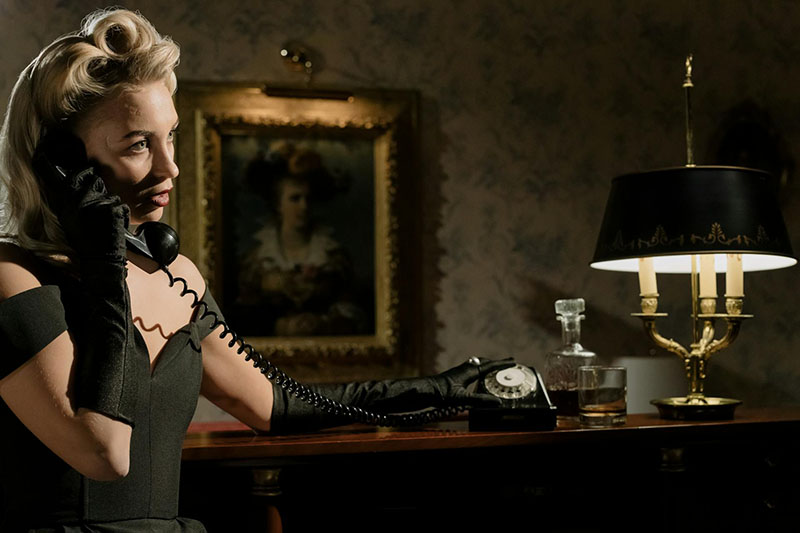
I’m back and, as threatened, I’ve got a Part 2. In Part 1, we talked about how talented creatives don’t just show up on your doorstep like a baby in a basket with a note that says, “Please employ this copywriter, her name is Clio.” We talked about training juniors, and developing… regular creatives (is there a word for the ones between junior and senior? I know there’s “mid-level,” but it sounds so… mid), and taking advantage of the experience of seniors.
But why are we doing that? What are we even using those freshly baked creatives for?
For lots. Let’s talk about those creatives, and what they do and why we need them.
Train a junior if:
You’re hurting for fresh ideas. This actually could apply to any level — need new ideas, bring in a new person — but a junior is great for this because their ideas are fresh fresh. They haven’t been ground down by the grist mill that is the advertising industry and taught to corral ideas that really could be let out to run. Bring in a junior, let ‘em cook. (And when they do, really listen to them — ideas you wouldn’t have thought of is the whole point.)
Your more senior team is strong, but their plates are full. God, I kind of feel like I’m betraying those more senior creatives here — “You don’t have to hire a mid-level or senior creative! A junior can do it just fine!” is a huge part of the attitude I rail against. But every creative has tasks on their plate that don’t require decades of experience and a portfolio school certificate to execute, and when that plate gets full, there’s no reason not to offload some of those tasks to a qualified, if more junior, colleague.
And I’m not talking about little scutwork tasks either — this includes tasks you wouldn’t necessarily think to entrust to a junior, but you’ll never know if you don’t try, they’re going to have more senior creatives around to make sure nothing explodes, let’s roll some dice.
You want to build long-term strength and stability in your organization. “Bringing in new blood” is always a good thing (except in medicine, when it generally indicates something has gone horribly wrong). But if your business strategy leans more toward stability than disruption, senior creatives who are seasoned not just in the industry but also in your agency culture, goals, and leadership styles, those are going to be DIY, and it’s going to start at the bottom.
Develop a… regular creative if:
(Seriously, please hmu with better suggestions for what we’re calling these people.)
You need a doer. Ideas and strategy are crucial, but without someone to execute, they’re nothing but a lonely pitch deck in the back of someone’s inbox. You need a reliable creative who can execute on those ideas and strategy, without handholding, applying experience and industry knowledge to create work you’d be happy to show the client. If you don’t have one of those, a mid-level creative is built for the job.

You’ve got creative leadership in place, but not enough hands. This calls back to the previous one — if you have a glut of CDs and ACDs and senior creatives with no one else in the dugout, you might as well not have job titles, because you’re all going to be doing all the everything (and probably pat yourselves on the back for “jumping in and helping” instead of “not being sufficiently staffed at that level). It sounds kind of obvious to say, “If you don’t have enough mid-level creatives, hire some,” but…
Okay, yeah, that’s pretty obvious. Why haven’t you don’t that already? That’s just silly.
Your bench needs more collaborative depth. This falls under the umbrella of “you need fresh ideas,” but your mid-level creatives play a special role in that: They bring experience to the table without so much time-honed industry cynicism, and they’re usually quick to read in on a new project, making them a great collaborator for concepting and adding depth to big ideas. (Note: As with juniors, making this work requires you to actually listen to the ideas they contribute.)
Hire a senior if:
You’re getting into double-digit rounds of revisions. One of the most frustrating and demoralizing creative struggles for everyone involved is creative going through eleventy hundred rounds of revisions because it isn’t quite right. You need someone who knows how to apply feedback and has that nebulous feel for creative, and who can help more junior creatives who are struggling to get it right. That comes with experience.
You’re struggling to bridge strategy and execution. I blather on about how I love copywriting because it’s creative writing with a goal, and that’s kind of the thing, in general, that distinguishes ad creative from just, like, being an artist or something. And if your creative team is having a hard time doing both, bringing someone in at the top who’s been successfully doing that for a goodly amount of time can share that with the rest of the team and help them get it together. (Literally get it together. Not, like, “Jesus, get it together, Jessica.”)
You need someone to elevate the work and the team behind it. Great work comes from great teams. And great teams feel safe thinking big and taking chances, and they can stay focused while thinking creatively, and they collaborate effectively, and a strong leader is at the head of all that. That’s going to be someone with time in grade, an eye and/or ear for strong creative, and a mindset to develop other creatives (remember development?) and not just boss them around. All those things come over time.
If you can’t make your own creatives, store-bought is fine.
I absolutely get it: Senior creatives cost more than mid-level ones, who cost more than juniors, who cost more than AI. But it’s because they do different things, contribute different things, and solve different problems. (And when they hallucinate, it’s easy to recognize and sit them down in a quiet room with a bottle of water.) Staffing creatives is an accept-no-substitutes kind of deal, as is remembering the importance of training/development/experience for the creatives you have.
Does it sound like work, and also money? Yeah, and I’m not going to pretend it doesn’t. But it’s the kind of up-front investment that pays off in the future. (Ugh, that sounds like such a cliche. Sucks that it’s true.) There’s no one recipe, no staffing combo, that will work for every agency. But the ingredients are pretty important, and when you know what they contribute to your… dish, you can…
Whatever. I lost control of the metaphor there. You get it, though. Staff up the right team and let them cook.
And if you’re looking for a good senior copywriter… Reasonable rates, inquire within.

